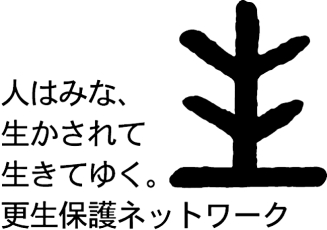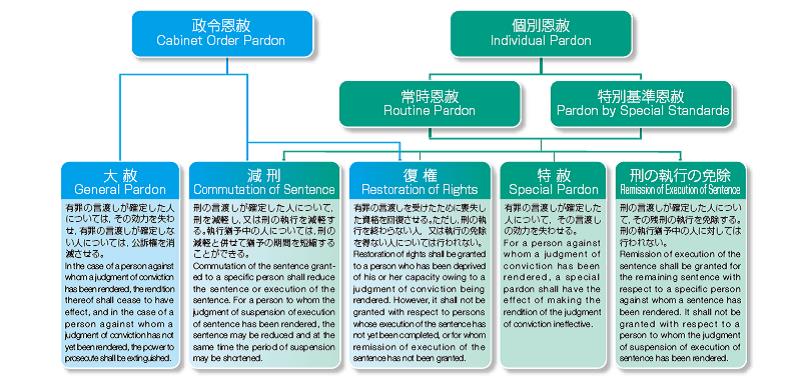What is the Rehabilitation of Offenders?

In order to make up for committed crimes and to return as a member of society, not only is the strong will of the person and the work of government agencies essential, but also the understanding and cooperation of the local community.
In Japan, in addition to probation officers, offender rehabilitation facilities and people called rehabilitation volunteers, offender rehabilitation is promoted through the wide-ranging collaboration of relevant organizations and organizations with an understanding of offender rehabilitation and cooperation.
The content of offender rehabilitation is mainly as follows.
Probation
Urgent Aid and Urgent Aftercare of Discharged Offenders
Parole
Coordination of social circumstances
Pardons
Crime prevention activities
* Watch the “Offender rehabilitation introduction video” on the Ministry of Justice’s YouTube channel.
The website mentioned above is a video distribution website operated by Google LLC under the supervision of the Ministry of Justice.
Please be aware that the link is current as of February 2012 and may have been deleted or changed.
* What is the “Ikiru” mark?
In commemoration of the 50th anniversary of the entry into force of the rehabilitation system in 1999, the “Ikiru” mark was created — a symbol expressing the way we live in the present and will live the future, like how a tree grows, based on a motif of animal bone and metal inscriptions. Later, on the occasion of the 60th anniversary in 2009, it became the symbol of rehabilitation.
In Japan, in addition to probation officers, offender rehabilitation facilities and people called rehabilitation volunteers, offender rehabilitation is promoted through the wide-ranging collaboration of relevant organizations and organizations with an understanding of offender rehabilitation and cooperation.
The content of offender rehabilitation is mainly as follows.
Probation
Urgent Aid and Urgent Aftercare of Discharged Offenders
Parole
Coordination of social circumstances
Pardons
Crime prevention activities
* Watch the “Offender rehabilitation introduction video” on the Ministry of Justice’s YouTube channel.
The website mentioned above is a video distribution website operated by Google LLC under the supervision of the Ministry of Justice.
Please be aware that the link is current as of February 2012 and may have been deleted or changed.
* What is the “Ikiru” mark?
In commemoration of the 50th anniversary of the entry into force of the rehabilitation system in 1999, the “Ikiru” mark was created — a symbol expressing the way we live in the present and will live the future, like how a tree grows, based on a motif of animal bone and metal inscriptions. Later, on the occasion of the 60th anniversary in 2009, it became the symbol of rehabilitation.
Probation
〇 Purpose and Type of Probation
The Ministry of Justice may conduct probation for offenders and delinquents as community corrections. Probation includes instruction, supervision, guidance and assistance so that offenders and delinquents become sound members of society. There are five types of people on probation: juveniles on probation, parolees from juvenile training school, parolees from penal institutions, persons on probation with suspension of execution of sentence, and parolees from a women’s guidance home.
〇 Flow and Methods of Probation
The probation officer and the volunteer probation officer provide instruction, supervision, guidance and assistance for the probationers/parolees during the term of probation.
The Ministry of Justice may conduct probation for offenders and delinquents as community corrections. Probation includes instruction, supervision, guidance and assistance so that offenders and delinquents become sound members of society. There are five types of people on probation: juveniles on probation, parolees from juvenile training school, parolees from penal institutions, persons on probation with suspension of execution of sentence, and parolees from a women’s guidance home.
〇 Flow and Methods of Probation
The probation officer and the volunteer probation officer provide instruction, supervision, guidance and assistance for the probationers/parolees during the term of probation.
Urgent Aid and Urgent Aftercare of Discharged Offenders
If those on probation or those who have been released from physical detention due to criminal proceedings need assistance or protection, the following measures can be taken.
Parole
Parole is a system aimed to achieve smooth reintegration into society by temporarily releasing those incarcerated in correctional institutions before the termination of the full sentence of incarceration. Persons released on parole shall be placed on probation.
Coordination of Social Circumstances
Probation officers conduct Coordination of Social Circumstance for inmates in correctional institutions. It aims for their smooth reintegration into society. Probation officers research and coordinate inmates’ residences, employment, and living environments after release. Parole Boards decide parole considering the result of this research and coordination.
Pardons (individual pardons)
Pardons change sentences pronounced after criminal trials without further court proceedings and nullify their validity. There are two kinds of pardons: pardons by Cabinet order, which define the types of crimes and punishments subject to the pardon and those that fall under the requirements, and pardons for specific people that examine specific people individually.
There are the four types of individual pardons:
Special Pardon:
Validity of conviction itself is nullified
Commutation of Sentence:
Sentence is reduced, or execution of punishment is reduced
Remission of Execution of Sentence:
All future execution of decided sentence is exempted
Restoration of Rights:
Restores qualifications lost or suspended in accordance with laws and regulations for those who finished the execution of sentences
There are the four types of individual pardons:
Special Pardon:
Validity of conviction itself is nullified
Commutation of Sentence:
Sentence is reduced, or execution of punishment is reduced
Remission of Execution of Sentence:
All future execution of decided sentence is exempted
Restoration of Rights:
Restores qualifications lost or suspended in accordance with laws and regulations for those who finished the execution of sentences

According to the procedures of pardons for specific persons, the warden of the penal institution or the director of the probation office or a public prosecutor, ex officio or upon an application filed by the person in question, submits a petition for a pardon to the National Offenders Rehabilitation Commission. The commission examines the petition, and if the commission decides it is appropriate to grant such pardon, the commission makes recommendation to the Minister of Justice that it is reasonable to grant a pardon. The Cabinet then decides on the pardon and the Emperor attests it.
Crime prevention activities
Crime prevention activities are activities that strive to promote public understanding and improve the social environment that caused crimes in order to prevent crimes and delinquency.
The purpose of crime prevention activities in rehabilitation is to aim for the construction of a safe and secure community by working to strengthen the sense of social solidarity and social norms in order to prevent the occurrence of crime beforehand. In addition, by deepening the understanding and interest of people in the community about the recovery of criminals and juvenile delinquents, accepting them as members of the community and protecting and assisting them in their recovery, the aim is to create an environment that does not allow them to commit crime or delinquency.
In each area, crime prevention activities in offender rehabilitation are promoted in cooperation with local governments and relevant organizations in the region with a focus on offender rehabilitation volunteers including volunteer probation officers. Specifically, local residents are called upon to work together to create a society without crime or delinquency and to cooperate in the recovery of juveniles who committed crimes and delinquencies through lectures, symposiums, workshops on preventing delinquency, delinquency consultations and patrol activities.
The “Brighter Society Campaign” ~ The power of the community that prevents crimes and juvenile delinquency and helps offender rehabilitation ~ advocated by the Ministry of Justice is one such crime prevention activity.
The purpose of crime prevention activities in rehabilitation is to aim for the construction of a safe and secure community by working to strengthen the sense of social solidarity and social norms in order to prevent the occurrence of crime beforehand. In addition, by deepening the understanding and interest of people in the community about the recovery of criminals and juvenile delinquents, accepting them as members of the community and protecting and assisting them in their recovery, the aim is to create an environment that does not allow them to commit crime or delinquency.
In each area, crime prevention activities in offender rehabilitation are promoted in cooperation with local governments and relevant organizations in the region with a focus on offender rehabilitation volunteers including volunteer probation officers. Specifically, local residents are called upon to work together to create a society without crime or delinquency and to cooperate in the recovery of juveniles who committed crimes and delinquencies through lectures, symposiums, workshops on preventing delinquency, delinquency consultations and patrol activities.
The “Brighter Society Campaign” ~ The power of the community that prevents crimes and juvenile delinquency and helps offender rehabilitation ~ advocated by the Ministry of Justice is one such crime prevention activity.

